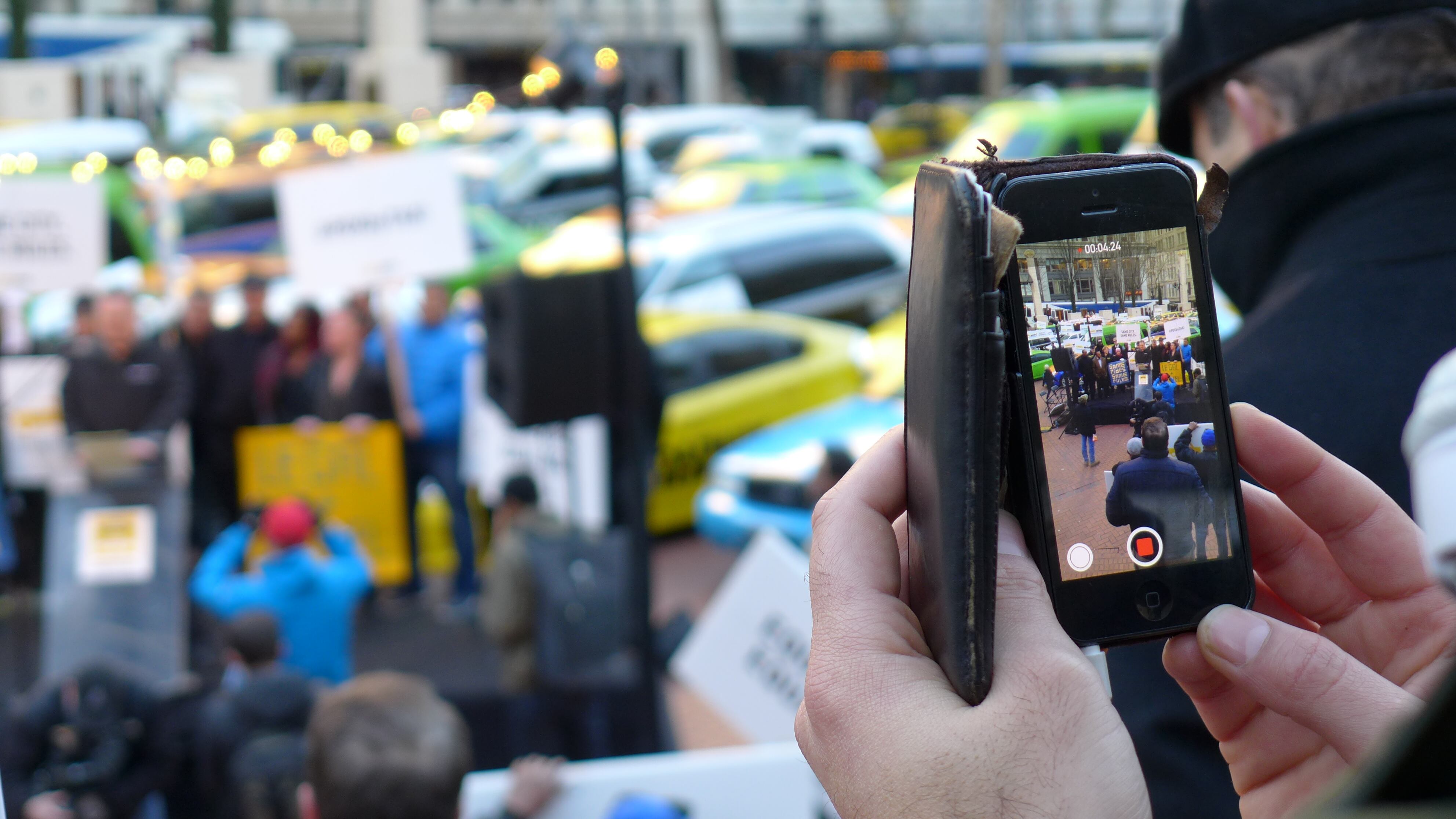Portland City Commissioner Nick Fish is calling for City Council to conduct an independent investigation of whether the ride-hailing company Uber broke state or federal law, or violated its contracts with the city, by using software to block inspections.
"I want the city to take a very aggressive role and I want the council to lead an investigation," Fish tells WW. "I will seek the ability to issue subpoenas. We need to compel Uber to produce information. The council cannot consider any updates to our code without understanding the magnitude of this scandal."
Fish's call for an investigation comes in the wake of a Friday report in The New York Times alleging that Uber helped its drivers dodge code inspectors and deceive regulators in Portland using software called "Greyball."
The report says that even as Uber muscled its way into the Portland taxi market in 2013, and brokered a truce with then-Mayor Charlie Hales, it used "Greyball" to identify potential city inspectors and keep them from hailing an Uber ride.
Earlier today, Fish told WW he wants City Council to investigate whether that deception broke any laws, or continued to break the law after Uber signed contracts with the city.
Uber lobbyist Jon Isaacs says the company has not attempted to avoid detection since it began operating with the city's sanction in 2014.
"The VTOS program has not been used in Portland since a regulatory agreement was reached with the city," Isaacs says in a text. "I refer you to this OregonLive story from last year which makes it clear that inspectors who use the Uber app to spot check driver compliance are able to do so. We have built a positive working relationship with PBOT and our local team works hard everyday to maintain a strong record of compliance for the 6,000 active Uber drivers and 325,000 active Uber riders in the Portland metro area."
Fish, who voted against legalizing Uber, says he wants to know whether the company's use of "Greyball" software allowed it to block riders it didn't want and gain an unfair advantage in the taxi marketplace.
"We knew they came in and operated illegally," Fish says. "We didn't know they had this elaborate campaign to profile potential government regulators and prevent them from getting rides. But now that we know, it raises the obvious question: Have they used this technology to redline other potential riders and cherrypick only the most lucrative fares?"
Mayor Ted Wheeler's office could not be reached for comment Sunday evening. On Friday, Wheeler said he was "very concerned" by the report and pledged that he would work with Transportation Commissioner Dan Saltzman to investigate.
Fish has asked the City Attorney's Office for an opinion on what the options for a city investigation are. City Council has issued subpoenas before, including to Portland General Electric in a struggle for the utility's future in the early 2000s.
Fish says that level of authority is needed again. He wants to know the full scope of Uber's actions, and says the city can no longer take the company's word at face value.
"I'm concerned about privacy issues," Fish says. "I'm concerned about skullduggery that went down in 2014. Once you have figured out how to effectively redline consumers, what prevents you from blocking people who live in poorer areas, older adults, people with animals, people with disabilities? At the end of the day, we can't reward bad corporate behavior."


